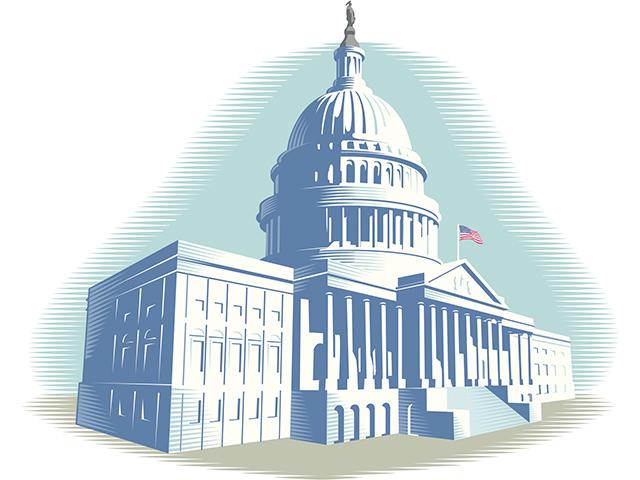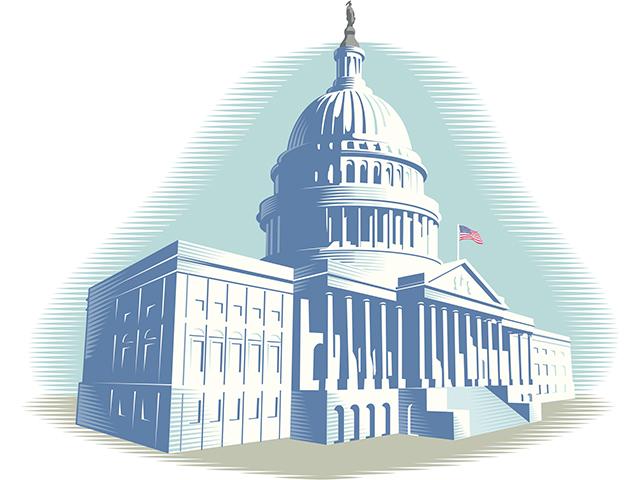Editors' Notebook
Key 2023 Stories Weigh on 2024
Throughout the holiday season, we've revisited 10 stories that DTN's editorial department concluded had the biggest influence on agriculture in 2023. As I noted in the previous Editors' Notebook post (https://www.dtnpf.com/…), this year was, on the surface anyway, more difficult than most to pick 10 truly critical stories. There were important events and occurrences, but there just weren't immediately identifiable, mission-critical happenings.
I argued that below the surface, however, there are some truly concerning stories among our Top 10; they will weigh on 2024 almost as much as in 2023, if not more. In my mind, at least, the concern wasn't that they weren't being talked about -- but perhaps they deserve more attention than they got.
One such story was about Brazil's surpassing the United States in corn exports -- not production, but in exporting to other countries -- for the first time. That feat joins Brazil's surpassing the U.S. as the world's soybean supplier in 2016, about the same time we lost the world's wheat basket status to Russia.
Of immediate concern, of course, is finding a place to go with our ever-expanding yields in those three crops. We've written a lot about using soybeans and corn in increasing non-food markets, particularly as petroleum replacements. That helps prop up prices.
The broader concern is our position as a world stability provider and influencer with major importers such as China, when they suddenly don't need as much of our foodstuffs and big crops.
Another storyline that I think is getting short-changed is our No. 1 story: the lack of a new farm bill and why.
When I suggested it get top billing as having the most influence on ag in 2023, many said it's not the first time the farm policy can has been kicked down the road. It's also true that there's no current crisis with the existing bill; it seems to be covering current issues in commodity support, nutrition, land conservation and other areas.
If we're relatively satisfied with those programs, what's the problem with extending them?
One could add it wasn't a great surprise that we didn't get a bill passed. In his stories and blogs on DTN, our Ag Policy Editor Chris Clayton had been predicting the failure of government to finish a 2023 bill well over a year ago, much to the chagrin of a lot of politicians and policy wonks who wanted to paint a rosier, more hopeful, picture.
What moves the lack of a farm bill to the top of our "concerns" list is not the "what," the simple failure to produce legislation. It's strongly the "why" and the "when" of government failing to get a farm bill completed.
P[L1] D[0x0] M[300x250] OOP[F] ADUNIT[] T[]
As already stated, this isn't the first time we've failed to pass a farm bill on deadline. There's often a drawn-out debate over Supplemental Nutrition Assistance Program (SNAP) funds versus money set in for Title I farm commodity programs. We've also seen Congressional compromise take longer than wanted to align cotton producer wants with those of soybean or corn growers, and balancing dairy lobby demands with other budget items, or how to make room for specific conservation goals.
But those aren't the key reasons we're now staring down the barrel of trying to finish a farm bill during a presidential election year -- and the fear the bill will be pushed into 2025. No, on top of all those usual debates, which remain, a chief reason the 2023 farm bill failed to launch is this new level of dysfunction within Congress. There aren't just "D" versus "R" issues to resolve. Today, all these traditional issues are layered over by the split between the MAGA GOP, many of whom have not-so-friendly takes on farm supports, versus the rest of the Republican party. It will be really interesting -- and yet also frustrating -- to see how the current Hill dramas reignite once Congress comes back in the new year.
If we can't get a farm bill in early 2024, before the presidential race heats up, we are very likely to roll into 2025 kicking that same can. And who knows what issues we'll deal with in food and fiber production by then? Will we continue to lose export markets? Where will interest rates be in the world? What new political and social issues will make farm bill debates even more contentious?
There are two other stories to which I'll call attention.
One is interest rates. Few would argue that wasn't a critical subject in 2023. But it rose to No. 2 in our lineup following our 2023 DTN Virtual Ag Summit in early December. Our Summit farmland panel of experts (https://www.dtnpf.com/…) noted that one of the reasons farmland prices have stayed high, despite the general rule that higher interest usually pushes down prices of real property, is that current buyers aren't worried about interest rates on loans. They're cash buyers. And, increasingly, they're not farmers, but rather nonfarming investors or groups looking for a place to park cash. Investors also often have the dollars to buy the large acreages that come on the market when a modern farming operation closes shop or when the farm operators die and their nonfarm heirs want to cash out.
That puts farm operators who hope to buy land -- but have to add interest to any potential principal payment -- at an even bigger disadvantage than meets the eye. It's that increasing level of "haves versus have-nots" that makes me ponder where this will take us in the coming years. So, it bears close watching.
In 2023, the Environmental Protection Agency's proposed plan on herbicide regulations to protect endangered species made our list at No. 8. But I'd submit that story is a sleeper at that level: Brace yourself for much more to happen with the EPA and Endangered Species Act -- and what will be the impact on ag in the year ahead and beyond.
Crops Editor Jason Jenkins offers some history, and some even-handed perspective, on the ESA in his piece on the 50th anniversary of the act, which can be found in the previous Editors' Notebook blog post (https://www.dtnpf.com/…). But as Jenkins alludes, it will be complicated to move from major successes like the return of the bald eagle to protecting the more than 1,600 lesser-known species such as the dusky gopher frog or the whorled sunflower. Look at a map of potential endangered species habitats and there's a lot of U.S. farmland shaded in. So, the herbicide discussions in 2023 serve as an alert -- expect more to come on the ESA and its collision with U.S. agricultural interests.
One thing you can count on is that we'll keep a close eye on these and other business-critical issues in the coming year. And we're always interested in your thoughts as well. Below you'll find the links to each of our Top 10 Ag Stories of 2023; on Dec. 31, we'll have a story highlighting the Best of the Rest -- the runners-up for this year's top ag stories.
Agree with our Top 10? Disagree? Let me know.
No. 10: "Livestock Producers Lean Into USDA's Livestock Risk Protection Coverage (LRP)," https://www.dtnpf.com/…
No. 9: "Supreme Court Rules on Two Major Ag Cases," https://www.dtnpf.com/…
No. 8: "EPA's Plan to Protect Endangered Species From Herbicides Draws Criticism," https://www.dtnpf.com/…
No. 7: "The High Cost of Some Inputs Fall, But So Does Farm Income," https://www.dtnpf.com/…
No. 6: "Ongoing Drought Slows Cow Herd Expansion During Year," https://www.dtnpf.com/…
No. 5: "King Corn Gives Up Its Crown as US Export Share Remains in Decline," https://www.dtnpf.com/…
No. 4: "2023 Wild Weather Caused by Quick Change in La Nina to El Nino Ocean Temperatures," https://www.dtnpf.com/…
No. 3: "The Crop Year of Surprises," https://www.dtnpf.com/…
No. 2: "Interest Rates on Farm Loans Soar to 20-Year Highs as Fed Fights Inflation," https://www.dtnpf.com/…
No. 1: "2023 Farm Bill Plans Disappear in a House Divided," https://www.dtnpf.com/…
Greg D. Horstmeier can be reached at greg.horstmeier@dtn.com
Follow him on X, formerly known as Twitter, @greghorstmeier
(c) Copyright 2023 DTN, LLC. All rights reserved.





Comments
To comment, please Log In or Join our Community .